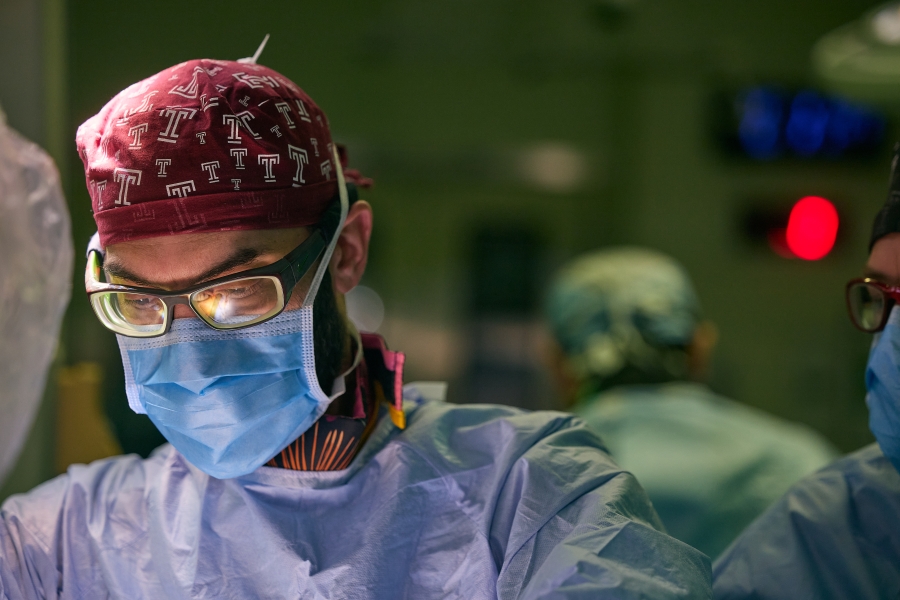Abnormal heart beats, or arrhythmias, aren't always dangerous — and some may not even require treatment. However, others can cause symptoms that disrupt daily life and that may be dangerous or even life-threatening. And if initial treatment — like lifestyle changes and medications — can't correct the abnormal rhythm, it may be time to try cardiac ablation.
As an electrophysiologist, a cardiologist who specializes in diagnosing and treating arrhythmias, I often recommend cardiac ablation to my patients whose arrhythmia symptoms aren't resolved by medications. I also suggest cardiac ablation to my patients who have certain types of arrhythmia that respond well to the procedure - this would include supraventricular tachycardia (SVT), atrial flutter, or atrial fibrillation (AFib).
My patients often have questions about cardiac ablation and what to expect from the procedure. Here's what I tell them.
Understanding arrhythmia
Arrhythmias are abnormal heartbeats. They happen when the electrical “signals” in the heart misfire causing the heart to beat too slowly (bradycardia), too quickly (tachycardia) or irregularly, like with atrial fibrillation, or AFib.
While not all abnormal heartbeats cause symptoms, patients with arrhythmia may feel a sensation of their heart pounding or skipping beats. They may also feel faint or weak or have shortness of breath or fatigue. Arrhythmias may also raise a person’s risk for serious problems, such as cardiac arrest, heart failure or stroke.
How cardiac ablation helps
Cardiac ablation targets the areas that produce these faulty electrical “misfirings” that I mentioned earlier.
In the procedure, the surgeon inserts a thin, flexible tube called a catheter. This tube goes into a blood vessel in the neck, arm or groin. We then gently guide the catheter through the blood vessels to the heart.
Then we use the catheter to aim heat at the tiny area of tissue that contains the problem. Or we may target extremely cold temperatures to the area. This is called cryoablation.
Pinpointing these small areas means the electrical signals that cause the arrhythmia can't be sent to the rest of the heart. The goal is to alleviate the risks associated with arrhythmia and improve the quality of life. In some cases, cardiac ablation can cure the arrhythmia completely.
The procedure usually takes three to six hours, depending on the type of arrhythmia. Depending on their specific arrhythmia and other health conditions, patients may be fully awake, lightly sedated or under full anesthesia during their cardiac ablation.
After the procedure, we’ll often try to “force” the arrhythmia to happen again, to see if it’s fixed. If the heart continues to beat properly, then we’re done! If we can reproduce the arrhythmia, we may deliver additional radiofrequency energy or freezing.
What to expect after a cardiac ablation
Immediately after the procedure, you’ll rest in a recovery area where your medical team can closely monitor you. After a few hours, you may be able to go home, although some patients spend the night in the hospital.
Some of my patients report soreness after an ablation, but it usually lasts less than a week. Most people can return to their usual activities within a few days, although your doctor may tell you to avoid heavy lifting for about a week. Your care team will work with you to determine what level of activity will work best for you.
Cardiac ablation is a highly effective treatment, and most of the people I treat find their quality of life improves significantly after the procedure. Sometimes medication is still needed. In some cases, the arrhythmia may continue to happen, and in these cases, we may opt to do another ablation or try another treatment. At Temple, our Arrhythmia Program offers a wide range of leading-edge arrhythmia treatments.
Get expert arrhythmia care
Temple Health is the leading regional referral center for cardiac ablation. We have leading-edge equipment and an experienced team that specializes in arrhythmia care. At the Temple Heart & Vascular Institute, we assess, manage, and treat even the most complex heart rhythm disorders.
If you’re experiencing the symptoms of arrhythmia, request an appointment or call 800-TEMPLE-MED (800-836-7536) today.
Helpful Resources
Looking for more information?

